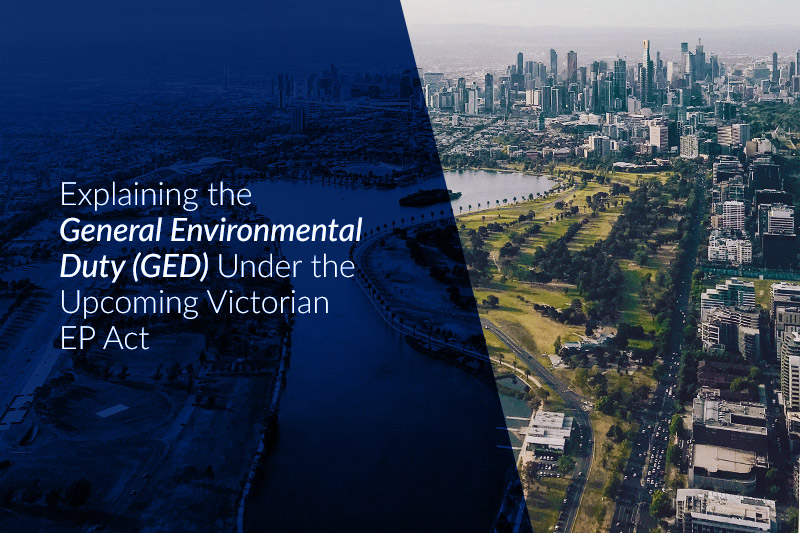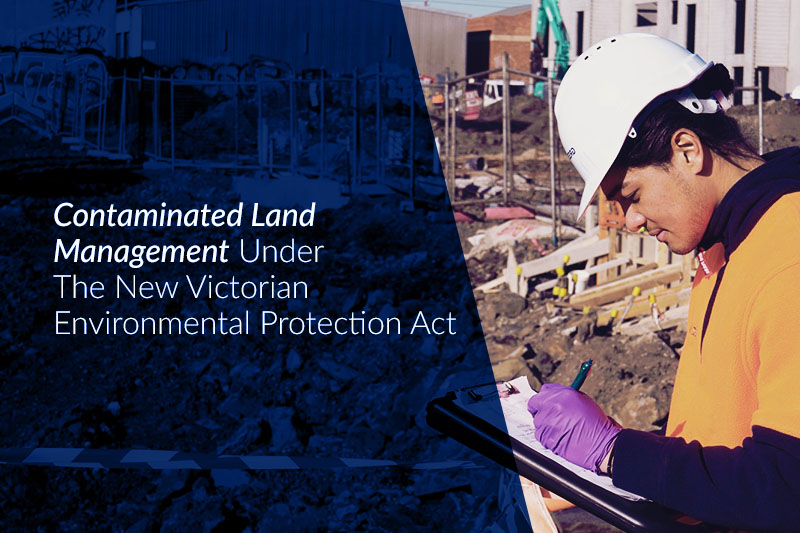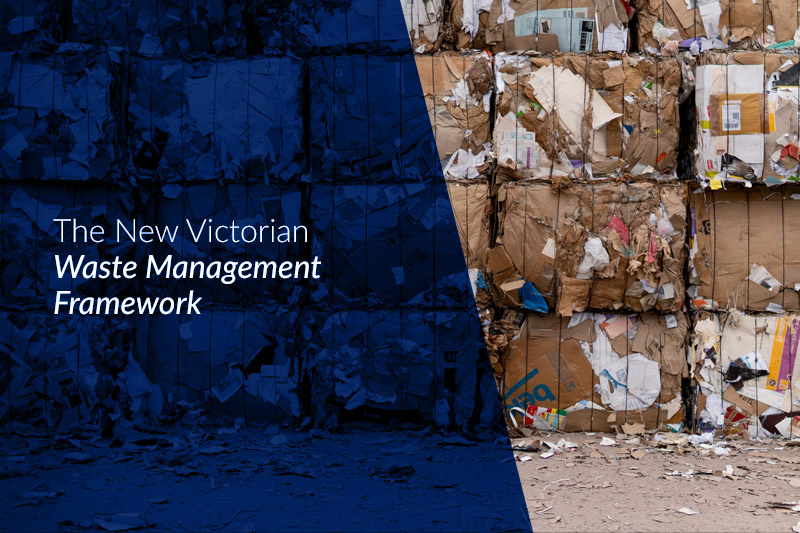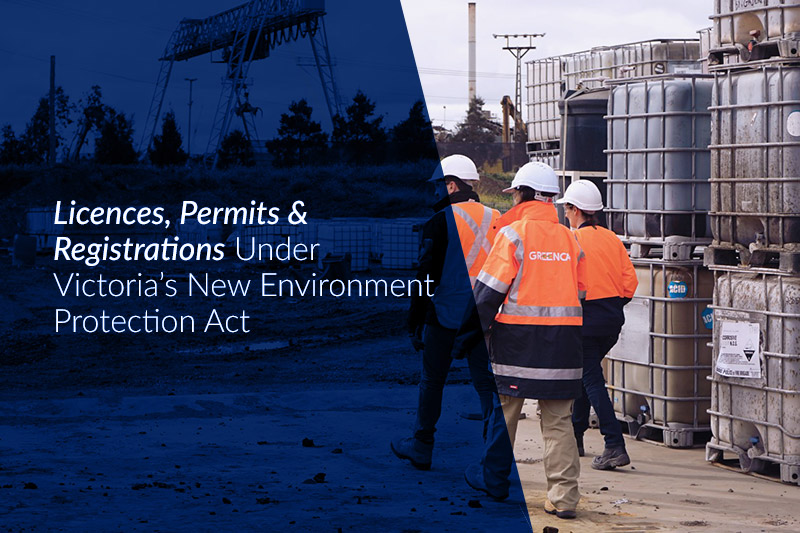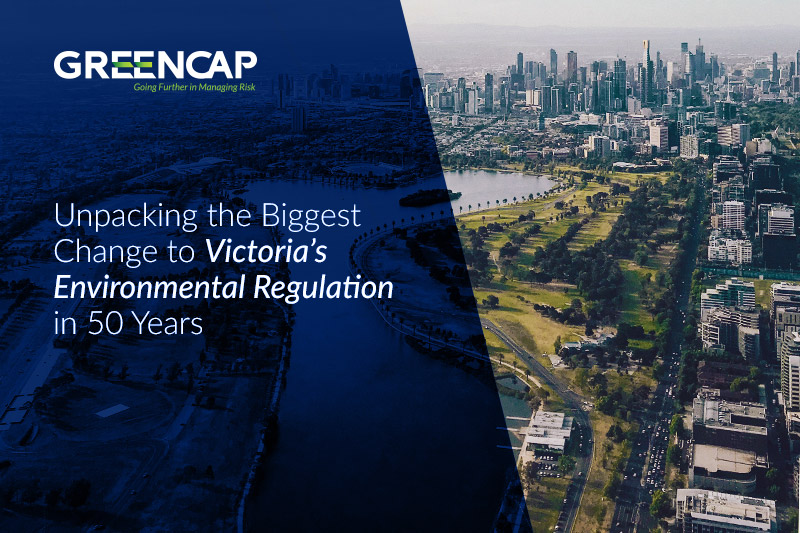Victorian Environment Protection Act
Victoria’s new environment protection legislation, the General Environmental Duty (GED) commenced on 1 July 2021. This is the most significant reform to Victoria's state’s environment protection laws and regulations in the 50 years of the Victorian Environment Protection Authority (EPA).
Greencap is now part of WSP
“A person who is engaging in an activity that may give rise to risks of harm to human health or the environment from pollution or waste must minimise those risks, so far as reasonably practicable.”
The new Environment Protection Act, which commenced 1 July 2021, is prevention based, with a focus on systems to reduce risk to human health and the environment. This is in contrast to the previous consequence based EP Act of 1970, which was more focused on managing existing outcomes.
The General Environmental Duty (GED) aims to prevent harm in all business activities before work starts on site. This is modelled on the Occupational Health & Safety (OHS) Act.
The prevention of harm could be as simple as pre-start toolbox, or as complicated as a full Environmental Management Plan (EMP) depending on the site. An Environmental Management System (EMS) including staff training and continuous monitoring, and prompt recording and notifications of incidents to the EPA, may also be utilised for an entire business.
The GED applies to the following if it has the potential to cause harm:
- Noise
- Vibration
- Erosion
- Dust
- Sediment
- Pollution
- Waste classification
- Waste contaminated soils
- Contaminated land
On-Demand Webinar:
- Unpacking Victoria's New Environment Protection Act (3 June 2021)
Discover construction specific information here:
Frequently Asked Questions
What is the new Victorian Environmental Legislation?
The new legislation includes the Environment Protection Act 2017 and the Environment Protection Regulations 2021. There is supporting policy, including Environment Reference Standards, GG2021S245.pdf (gazette.vic.gov.au), EPA Publication 1827.2: Waste Classification assessment protocol March 2021 1827.2: Waste classification assessment protocol | Environment Protection Authority Victoria (epa.vic.gov.au).
A full overview of the new laws is available on the EPA website – New laws to better protect the environment | (epa.vic.gov.au)
How has the legislation changed since the previous updates?
The new Act and Regulations have a strong focus on preventing and reducing environmental risks, not just responding to incidents, or managing pollution. The new Act contains 7 duties, these include the General Environmental Duty (GED), duties to notify and respond to pollution, duties to notify and manage contaminated land (no matter whom is at fault or when the contamination took place), duties to manage waste (industrial waste and priority waste), and more.
The centrepiece is the General Environmental Duty (GED), which requires “a person (or business/entity) engaging in an activity that may give rise to risks of harm to human health or the environment from pollution or waste must minimise those risks, so far as reasonably practicable.”
“Minimise” means to eliminate risks (so far as reasonably practicable) and if not, reduce the risks.
This requires identifying and assessing risks, implementing controls, and educating staff about their responsibilities under the GED.
What are the implications of not adhering to the Victorian Environmental Act and Regulations?
Businesses that do not comply with the Act and/or Regulations can be issued with a penalty, depending on the type of non-compliance and/or how serious the environmental hazard. There may be Improvement Notices, Prohibition Notices, Environmental Action Notices, or fines.
For example:
- Contravening a waste management policy or causing/allowing an environmental hazard could have fines over $500,000
- Dumping of industrial waste at a non-legal place (e.g., unlicensed facility or without licence-holders permission) could have fines over $1 million
- Breach of the GED could have fines over $1.6 million, aggravated breach of the GED could have fines over $3 million.
When should I be compliant by?
The Act, Regulations and policies are in force now (commenced 1 July 2021), so businesses should be preparing to be compliant now. This could include identifying their hazards and risks and any controls needed, preparing procedures to reduce environmental risks, or training staff in environmental compliance requirements. It doesn’t all need to be done at once, however, you should be able to demonstrate making a start and having a plan to become compliant.
What areas does Greencap specialise in regarding the Victorian Environmental Legislation?
Greencap specialises in assessing and controlling environmental risks, environmental management plans (including Construction Environmental Management Plans), assessing contaminated land and water for impacts on human health or the environment, Dangerous Goods/hazardous substances assessments, asbestos assessments, waste classifications, soil management plans, and training.
Helpful Links
Learn more about the regulations from the Victorian EPA here: General Environmental Duty (GED)
The new Environment Protection Act can be found at www.legislation.vic.gov.au
View the blog - The New Victorian Waste Management Framework, and check out all the news in the links below.
News - Victorian Environment Protection Act
Greencap acknowledges the Traditional Owners of Country throughout Australia and recognises their continuing connection to land, waters and culture. We pay our respects to their Elders past, present and emerging.


